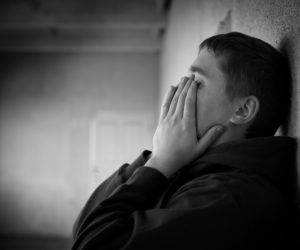Top 10 Drug Abuse and Mental Illness Fast Facts

Drug Abuse and Mental Illness Fast Facts
When it comes to drug abuse and mental illness fast facts, perhaps the most prominent thing to note is that many people who struggle in a cycle of addictive drug abuse also simultaneously suffer from symptoms of a serious mental illness.
Here are some more Drug Abuse and Mental Illness Fast Facts you might not be aware of.
Fast Fact #1: The common term for a person with a drug or alcohol abuse disorder and symptoms of a simultaneous mental health disorder is known as ‘dual diagnosis’.
Fast Fact #2: The drug abuse and mental illness statistics show that as many as 45% of people struggling with a substance addiction also exhibit symptoms of a co-occurring mental illness. Conversely, up to 51% of people with a mental health disorder also had at least one substance abuse disorder.
Fast Fact #3: There is a long-standing relationship between mental illness and drug abuse that commonly goes ignored when it comes to treatment. Serious mental health disorders, such as post-traumatic stress disorder (PTSD) or obsessive-compulsive stress disorder (OCD) cause sufferers to experience debilitating symptoms of anxiety and stress. In an effort to numb painful feelings or escape from overwhelming feelings many people will turn to drugs or alcohol to provide temporary relief. As drugs or alcohol can often trigger symptoms of anxiety or depression, or make existing symptoms worse, the person can become caught in a downward spiral of addiction very quickly.
Fast Fact #4: An estimated 14 million Americans struggle with dual diagnosis, displaying symptoms of a drug or alcohol abuse disorder along with symptoms of a mental health disorder.
Fast Fact #5: Drug abuse and mental illness statistics show that approximately 7.4% of people struggling with dual diagnosis receive the integrated treatments they need to effectively address both disorders simultaneously. The remainder goes untreated or improperly treated, which increases the risk of relapsing back into self-destructive behaviors associated with addictive substance use.
Fast Fact #6: Many people with improperly treated mental health problems may attempt to self-medicate with drugs or alcohol. Unfortunately, alcohol and most addictive drugs can trigger symptoms of mental illness, sparking a cycle of substance abuse.
Fast Fact #7: Traditional mental health care systems refuse to treat people with a drug or alcohol abuse disorder, believing the addict needs to enter into a drug rehab treatment program to get clean and sober first. Traditional mental health care systems provide opposing systems of care to drug or alcohol rehab treatment programs. As a result, some people may receive treatment for one disorder, but not the other. Some people may never receive the correct treatment needed to help them overcome addiction and learn healthy ways to manage symptoms of the mental health disorder.
Fast Fact #8: Drug abuse and mental illness statistics show that the most effective way to treat a person with dual diagnosis is with the use of integrated treatments. Specialized drug rehab treatment centers use integrated treatment models that take into account both disorders when tailoring the correct combination of therapies.
Fast Fact #9: Specialized dual diagnosis treatment programs advocate the use of psychotherapeutic medications to effectively manage symptoms of the mental health disorder. The use of treatment medications is then taken into account when determining the correct medication therapy to help treat the substance abuse disorder.
Fast Fact #10: The principal behind treating drug or alcohol addiction and a mental health disorder at the same time allows a therapist to address each person’s unique triggers on an individual basis. Cognitive behavioral therapies and individual counseling sessions are able to take into account both disorders and then help the recovering person develop a strong relapse prevention strategy that reduces the risk of returning to a dysfunctional pattern of substance abuse after leaving treatment.
Drug abuse and mental illness fast facts are a great way to learn a little more about the challenges facing people living with the dual diagnosis. Integrated treatment models designed to both co-occurring disorders concurrently offer people suffering from dual diagnosis an improved opportunity for making a successful recovery and learning how to manage mental illness symptoms without the need for drugs or alcohol.
If you or a loved one needs help with abuse and/or treatment, please call the WhiteSands Treatment at (877) 855-3470. Our addiction specialists can assess your recovery needs and help you get the addiction treatment that provides the best chance for your long-term recovery.
